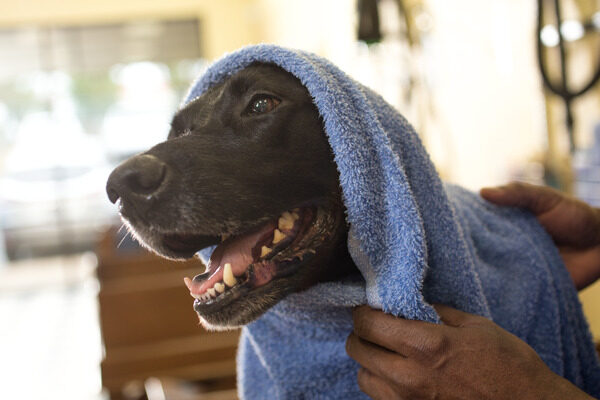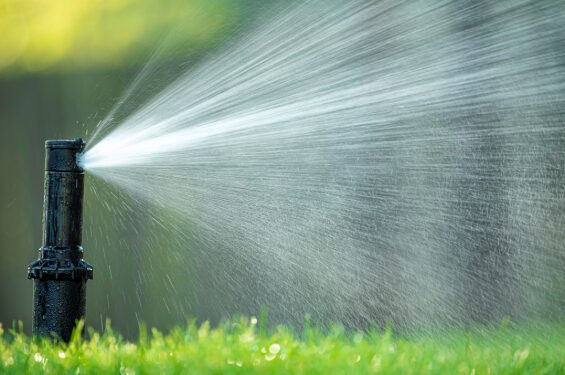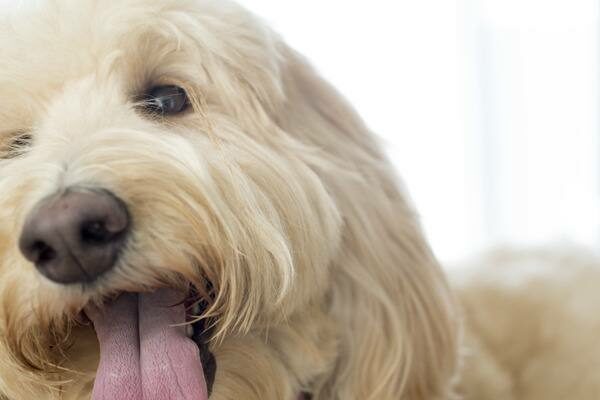
You may be ready to give your new puppy lots of love and attention, but how ready is your home? Puppy proofing a house is like baby proofing. And like babies, puppies are inquisitive explorers ready to get into whatever they can without a second thought. Use this puppy-proofing guide to help keep your furry friend safe and secure in their new home.
Kitchen
- Human food – Chocolate, nuts and onions are all toxic to pets. Get a complete list of foods that are dangerous to dogs here. Keep in mind that even if the food itself isn’t harmful, the food wrapper can be.
- Dog food – Store your pup’s food and treats out of reach to keep them from overeating. Proper food storage also depends on if you will be serving your puppy dry or wet food. Take a look at these storage tips from the American Veterinary Medical Association.
- Cleaning supplies – Secure cleaning products and don’t use them when your puppy is around; they can easily inhale toxic vapors or get liquid in their eyes.
- Trash cans – Keep garbage cans inside a cabinet or make sure to have tightly secured lids.
- Stove knobs – If your puppy is a jumper, install child safety latches on knobs to prevent injuries.
- Sharp utensils – Secure flatware and other utensils in a drawer or on a high counter away from the edge.
- Stove – While cooking, use the back burners on your stove top, if possible, and keep panhandles turned inwards. This will help to prevent your pup from being able to reach hot pots and pans.
Living Room/Bedrooms
- Small objects – Jewelry, coins, hair pins, and rubber bands are just a few items that can be choking hazards. Don’t leave anything lying around.
- Clothing, shoes and accessories – Socks, tights, and the like can become lodged in your dog’s gastrointestinal tract; so can shoelaces, buttons and other small accessories. Store them in a closed closet or dresser and keep laundry baskets out of reach.
- Fragile items – Until your dog is trained, keep breakable items, such as vases, glassware, and framed pictures tucked away.
- Decorative pillows and blankets – Puppies are chewers. Keep decorative pillows and blankets in a secure place until the teething stage is over.
- Electronics and cords – Remove or tuck away wires that your puppy could chew on, including cords from lamps, TVs, DVD players, stereos, and phones. Remote controls for these devices and other small electronics should be stored away as well.
- Fireplaces – Cover your fireplace with a screen.
- Cords from window blinds or drapes – Dangling cords or material could be a choking hazard. Tie them up and out of your dog’s reach.
- Recliners or rocking chairs – Avoid injuries to tails and paws by making sure recliners are closed and rocking chairs are blocked.
- Cat litter – If you have a cat, keep the litter box behind a closed door or gate. Kitty litter can cause intestinal obstruction or intestinal worms (if your cat has passed them).
- Bed or couch – Block the space under your bed or couch so your puppy can’t get underneath.
Bathroom
- Sinks, bathtubs, and toilets – Don’t let your pet near these potential drowning hazards. Also, close toilet lids to prevent your dog from drinking any toxic cleaning chemicals.
- Medications – Secure both personal and canine medications.
- Makeup, lotions and other toiletries – Store these products in a closed cabinet or drawer with a childproof latch. Keep other items like toilet paper, tissues, razors, soap, and cotton swabs out of reach, too.
Laundry Room
- Bleach, detergent, and other cleaning aids – Keep these items in cabinets. Chemicals, such as chlorine bleach and ammonia can create toxic fumes when combined and inhaled.
- Washing machine and dryer – Close doors to both so your puppy can’t crawl in.
- Dryer sheets – Contact with dryer sheets can result in skin irritation, while ingestion can lead to more serious issues such as kidney failure. Keep them out of reach.
Garage/Outdoors
- Fence or gate – Don’t allow your pup to roam free. Install a fence or gate and make sure there are no openings where they can get out.
- Outdoor plants, flowers, and shrubs – Remove any poisonous plants and flowers from your yard.
- Mushrooms – Clear your yard of mushrooms before allowing your puppy to play outside. Many types can be toxic to dogs and potentially life threatening.
- Gasoline, oil, paint, lawn fertilizers, insecticides, and auto supplies – Store these toxic substances in secure containers, where your puppy can’t reach them.
- Antifreeze, pesticides and rodenticides – Dogs can be attracted to the smell or taste of these chemicals, but ingestion of just a small amount can cause organ damage or even death.
- Pools, ponds, and hot tubs – Use a gate or cover these areas to prevent drowning.
- Barbecues, fire pits, and other heat or fire sources – Enclose these areas to prevent injuries.
If you don’t want your puppy to venture into certain areas of your home, block them with a baby gate or similar barricade. Also, it’s wise to block stairways, too, since they can be dangerous for smaller dogs.
Remember: Puppies are curious and can quickly get into trouble; they need to be watched. Get more tips for your new puppy to help them stay happy and healthy.



